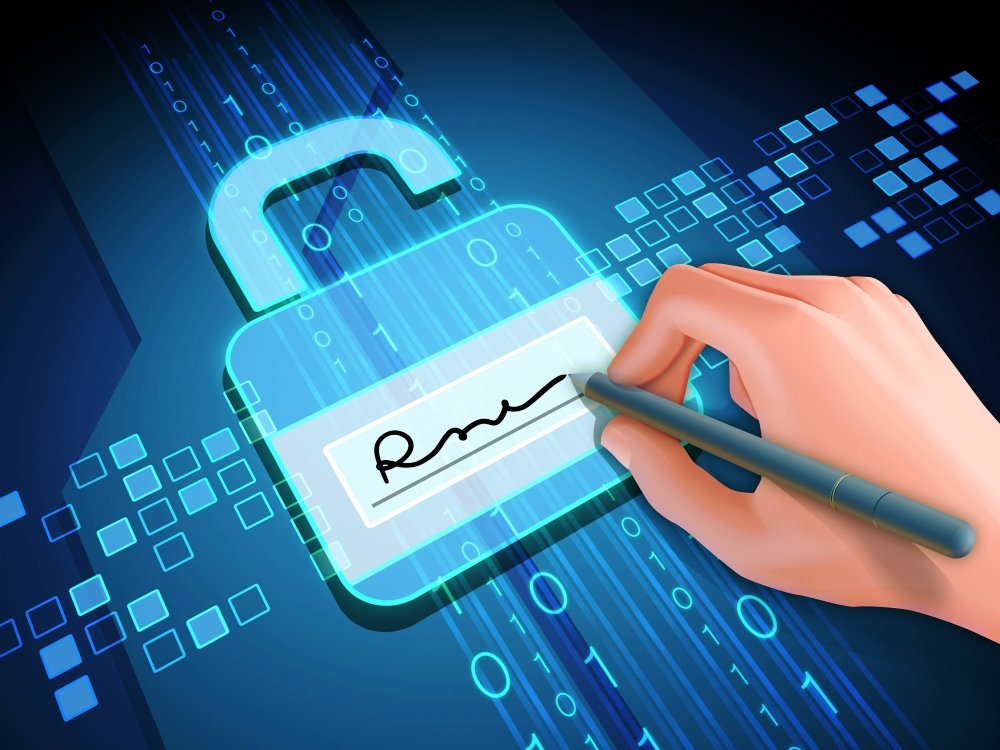INTRODUCTION
Since the effective total containment in Mauritius since March 20, companies and individuals must review their way of working by setting up remote work. Despite travel bans, economic operators must ensure the continuity of their activities to the best of their ability, which implies entering contractual commitments.
This situation allows us to revisit a technological tool that has existed in our legislative framework for almost 20 years and which allows contracts to be concluded despite the distance: the electronic signature.
This method of signing already used by certain economic operators on the island deserves the attention of those who had not yet adopted the electronic signature for the conclusion of contractual commitments, this hesitation probably comes from the uncertainty on the validity of a such signature under Mauritian law.
I) What is an electronic signature?
The electronic signature was introduced into Mauritian law by two texts: THE ELECTRONIC TRANSACTIONS ACT 2000 and the modifications to the Mauritian Civil Code in articles 1316-1 and following.
The electronic signature is defined by law as a sound, a symbol or an electronic process attached or associated with associated data used by a person intending to sign or approve this associated data, which results in the use of a reliable identification process guaranteeing its link with the act to which it is attached.
Thus, two characteristic elements emerge from these definitions: first the intention of its author to approve a document or an act, then the reliability of the process making it possible to identify the author of the signature.
The reliability of this process is presumed, until proven otherwise, when the electronic signature is created, the identity of the signatory assured, and the integrity of the act guaranteed.
No application of the texts applicable by the Mauritian courts has been identified to date, however we note a judgment from 2008 (CONNEXIONS SERVICES INFORMATIQUE LTÉE v MAERSK LOGISTICS (MAURITIUS) LTD 2008 INT 43) acknowledging that a series of words forming part an automatic signature at the bottom of an email constitutes an electronic signature but this decision must be read with caution, no reference to the relevant legal provisions to the electronic signature being mentioned.
The form that an electronic signature can take is widely defined by law : a sound, a symbol, a scanned copy of a handwritten signature. We will have to wait for future decisions in order to validate the application of these forms of signature and also to determine the validity of certain other procedures: the fact of checking a box “I accept”? a drawing?
What is certain is that the electronic signature produces legal effects equivalent to the signature on paper if when it is created, it can be verified that the signature:
- is specific to its author;
- allows the identification of this person;
- was created in a way or using a means under the exclusive control of the person using it; and
- is linked to the data associated with this signature so that any subsequent modification of the data is detectable
II) What is a digital signature?
Our law also recognises the validity of qualified electronic signatures called digital signatures. They consist of an electronic signature with a higher level of reliability: they are unique codes generated by an algorithm which are accompanied by a certificate issued by an Authorised Certification Authority (Mauritian or foreign) such as eMudhra (Mauritian provider), DocuSign or AdobeSign (international providers).
This form of signature can be compared to electronic “fingerprints”. In the form of a coded message, the digital signature securely associates a signatory with a document in a given operation.
The primary purpose of this type of signature is to verify the authenticity of the signature and to confirm the person of the signatory.
Although the effects of a qualified electronic signature are the same as the “classic” electronic signature, its interest lies in a more universal acceptance of its validity, which will thus benefit those who enter into contracts with international scope.
III) The use of the electronic signature
Although the use of electronic signatures concerns almost all acts of the day-to-day business, it should be pointed out that wills are excluded from the scope of application by law.
Unlike the French legislator who has taken care to exclude acts under private signature relating to Family law or acts relating to security given by a person (suretés personnelles et réelles), Mauritian law does not know these exceptions, which has the consequence to include these acts in the scope of the law.
Other acts for which witnesses or the presence of a public officer are necessary (an affidavit for example) seem to us more difficult to be subject to an electronic signature, but clarifications from the legislator would be welcome.
CONCLUSION
It is thus clear that the use of the electronic signature is allowed under Mauritian law, and we should in this period of restrictions of physical movements take advantage of this tool that technology allows and which will eventually become part of a tool of our daily life under ‘normal circumstances’!
Caution should be adopted in the case of international transactions, for which it will be necessary to ensure beforehand the validity of the electronic signature in the foreign jurisdiction concerned.
Ready? Get set your keyboard, Sign!
PLCJ Team – 2nd April 2020


